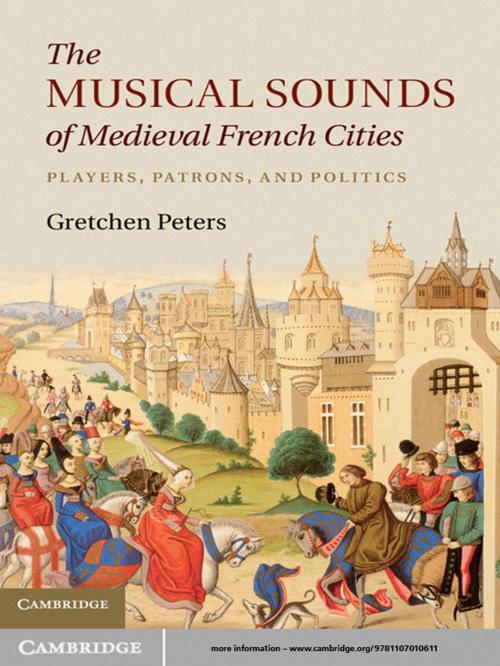The Musical Sounds of Medieval French Cities
Players, Patrons, and Politics
Nonfiction, Entertainment, Music, Theory & Criticism, History & Criticism, Reference| Author: | Gretchen Peters | ISBN: | 9781139579407 |
| Publisher: | Cambridge University Press | Publication: | September 27, 2012 |
| Imprint: | Cambridge University Press | Language: | English |
| Author: | Gretchen Peters |
| ISBN: | 9781139579407 |
| Publisher: | Cambridge University Press |
| Publication: | September 27, 2012 |
| Imprint: | Cambridge University Press |
| Language: | English |
Drawing upon hundreds of newly uncovered archival records, Gretchen Peters reconstructs the music of everyday life in over twenty cities in late medieval France. Through the comparative study of these cities' political and musical histories, the book establishes that the degree to which a city achieved civic authority and independence determined the nature and use of music within the urban setting. The world of urban minstrels beyond civic patronage is explored through the use of diverse records; their livelihood depended upon seeking out and securing a variety of engagements from confraternities to bathhouses. Minstrels engaged in complex professional relationships on a broad level, as with guilds and minstrel schools, and on an individual level, as with partnerships and apprenticeships. The study investigates how minstrels fared economically and socially, recognizing the diversity within this body of musicians in the Middle Ages from itinerant outcasts to wealthy and respected town musicians.
Drawing upon hundreds of newly uncovered archival records, Gretchen Peters reconstructs the music of everyday life in over twenty cities in late medieval France. Through the comparative study of these cities' political and musical histories, the book establishes that the degree to which a city achieved civic authority and independence determined the nature and use of music within the urban setting. The world of urban minstrels beyond civic patronage is explored through the use of diverse records; their livelihood depended upon seeking out and securing a variety of engagements from confraternities to bathhouses. Minstrels engaged in complex professional relationships on a broad level, as with guilds and minstrel schools, and on an individual level, as with partnerships and apprenticeships. The study investigates how minstrels fared economically and socially, recognizing the diversity within this body of musicians in the Middle Ages from itinerant outcasts to wealthy and respected town musicians.















